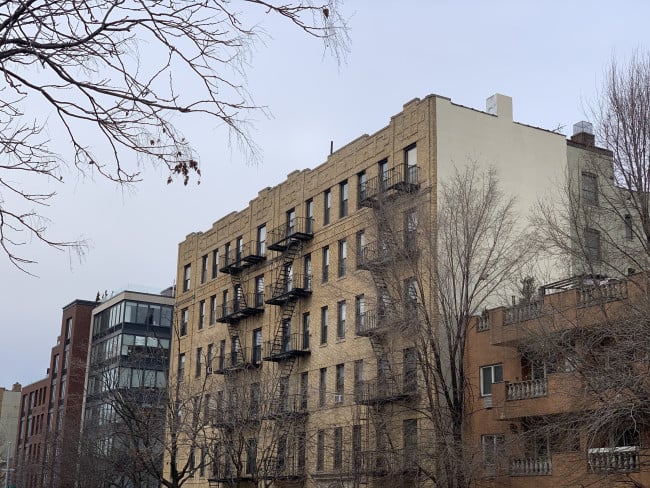What does it mean when an apartment has a 'tenant in place,' and why would you buy one?
- This type of investment can be a great opportunity for buyers who aren’t in a rush to move
- Buyers of rent-stabilized apartments may need to buy out the current tenant to move in themselves

Buyers should make sure they are comfortable with the risks before taking the plunge.
iStock
Occasionally I see listings for apartments for sale with "tenants in place." What would be the reasons and advantages for buying such an apartment?
These apartments are seen by some buyers as smart investments, and often come at a discount relative to similar units, our experts say. But there are some definite drawbacks, especially if you’re a buyer who wants to move into the apartment themselves.
An apartment with a "tenant in place" is just what it sounds like: a renter is already occupying the unit. And along with the renter typically comes a lower purchase price.
"Usually, the price is low because there is a catch: The apartments are sold with long term or rent-regulated tenants who cannot easily be dislodged, if at all," says Deanna Kory, a broker with Corcoran. "So typically they are bought by investors who have a long-term view of purchasing these units."
[Editor’s note: This article was originally published in June 2019. We are presenting it again with updated information for February 2024.]
Buying to move
Market-rate tenants, or those who lease the apartment on a month-to-month basis, are usually easier to move out, though buyers must carefully check the tenant's lease agreement. Since these buyers will also become the tenant's landlord, they should also look at a tenant's credit score and history of rent payments before purchasing the apartment.
This type of investment could be great for buyers who need to sell another property and aren't in a rush to move.
"When a buyer purchases a 'tenant in place' apartment, it gives them an extended timeframe to sell their current home," explains Gina Baker, content strategist at real estate brokerage The Close. "Since it is difficult to plan a sale and purchase simultaneously, having 'tenants in place' will allow the sale of the current home to align with the tenants vacating the apartment. Also, ideally, the tenants that are 'in place' are covering the expenses of the newly purchased apartment, so there's no additional overhead for the buyers during this time."
However, she adds, such buyers should hold off on making a full payment on the apartment until the tenant is out: "It is important to keep some funds in escrow until the current tenants vacate to make sure the home is in proper move-in condition for the new homeowners—for example, nothing was damaged when the tenants were leaving the apartment."
It’s also worth noting that the Housing Stability and Tenant Protection Act of 2019, a landmark landlord-tenant reform law, made it more difficult to evict market-rate tenants. Landlords must notify tenants in advance of rent increases above five percent of the current rent, or if they plan to end the lease.
A landlord has to provide at least 90 days notice of an eviction or rent hike to a tenant that has been in the apartment for more than two years, or one that has a lease term for more than two years. Even tenants who have only been in an apartment for less than a year get at least 30 days notice under the law.
Apartments with rent-stabilized tenants
A buyer of an occupied rent-stabilized apartment needs to take a long view, or be prepared to negotiate a buyout. When most rent-stabilized buildings undergo co-op or condo conversions, they do so under a non-eviction plan, meaning that an outside buyer can't evict the tenant living there.
"If you buy an apartment with a rent-stabilized tenant in place, you can't evict them, and you can't raise their rent [beyond the legal amount set by Rent Guidelines Board each year]," says Sam Himmelstein, founding partner at the law firm Himmelstein McConnell Gribben & Joseph (and FYI, a Brick sponsor). "You might also be stuck with a successor—the tenants' kids might take over the apartment."
In other words, a buyer might be unable to live in or sell the apartment for a long time—hence the lower price tag. When this happens, the buyer could try to buy out the tenant, a potentially costly proposition.
It's also unlikely that the tenant's monthly rent will cover maintenance fees and other carrying costs like insurance. Most insurers will require a specific policy for a non-owner occupied apartment, and you’ll want insurance in case there’s a fire or other unforeseen damages to the apartment.
So why go through all this hassle? Given the lower cost of purchasing the apartment, the investment could pay off handsomely in the long term as the apartment appreciates in value. But it's definitely a risky buy.
A previous version of this story contained reporting by Alanna Schubach.
Trouble at home? Get your NYC apartment-dweller questions answered by an expert. Send your questions to [email protected].
You Might Also Like



























